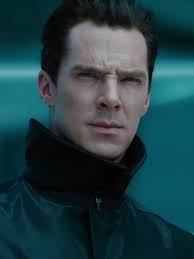The Enduring Legacy of Star Trek Khan

Introduction
Star Trek, a beloved science fiction franchise, has captivated audiences since its debut in 1966. Among its rich tapestry of characters, none stand out quite like Khan Noonien Singh, an iconic villain whose influence resonates deeply within the series and its fan base. A product of the 1967 episode “Space Seed,” Khan was later immortalised by Ricardo Montalbán in the feature film “Star Trek II: The Wrath of Khan” (1982), setting a new standard for antagonist complexity in cinematic history. The character’s dramatic journey raises questions about morality, vengeance, and the consequences of genetic enhancement, making Khan a vital part of Star Trek’s exploration of humanity.
Khan’s Origins and Cultural Impact
Khan is a genetically modified superhuman from the 20th century, representing the darker side of mankind’s quest for perfection. This background is significant as it mirrors real-world concerns surrounding genetic engineering and bioethics. His character serves as a cautionary tale, reflecting fears about the limits of human ambition and the ethical implications of playing God. This aspect has led to Khan becoming a symbol of the struggle between man’s aspiration for greatness and the inherent risks involved.
The portrayal of Khan by Montalbán left a profound mark on Star Trek’s legacy. His rich performance combined with the character’s layered motivations created a villain who was both formidable and relatable, solidifying Khan’s place in pop culture. The phrase “Khaaaaan!” became instantly recognisable, often invoked in parodies and tributes, illustrating the enduring affection for this character throughout the years.
Recent Developments and Continued Relevance
As Star Trek continues to expand with new series and films, Khan’s influence remains palpable. The character’s complex narrative elements inspire contemporary storytelling within the franchise, particularly in the context of moral ambiguity surrounding artificial intelligence and human evolution. The recent iteration of Khan in “Star Trek Into Darkness” (2013), portrayed by Benedict Cumberbatch, sparked debate among fans about originality and the nuances of adapting legacy characters. While this version of Khan received mixed reviews, it shows the character’s ongoing significance in the evolving Star Trek narrative landscape.
Conclusion
As Star Trek celebrates its rich history, Khan Noonien Singh embodies a fundamental tension within the series—one that balances ambition with ethical considerations. His stories encourage fans to reflect on the choices humanity faces as technology advances. With new storytelling opportunities on the horizon, the legacy of Khan ensures that future generations will continue to grapple with the questions he raised, highlighting the timeless relevance of Star Trek’s bold explorations of humanity’s potential. Whether as a cautionary figure or a source of inspiration, Khan remains inseparable from the fabric of Star Trek, reinforcing the show’s enduring legacy as a beacon of speculative thought.









